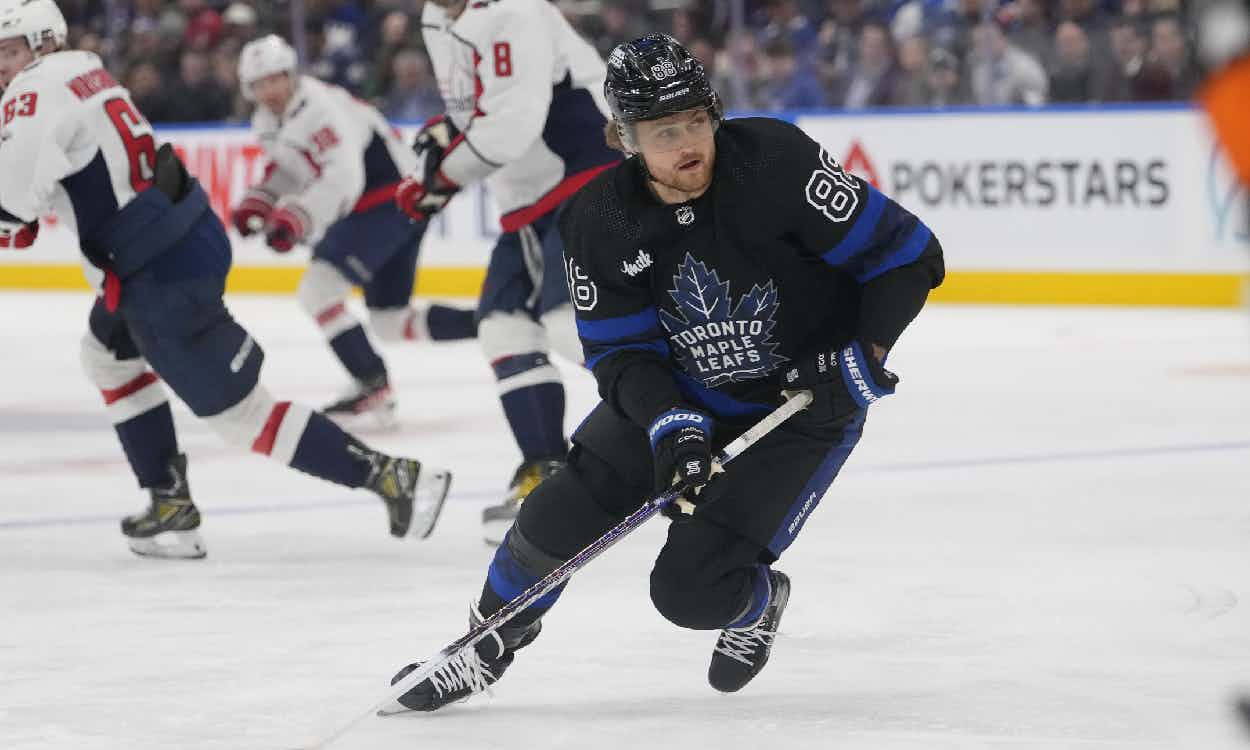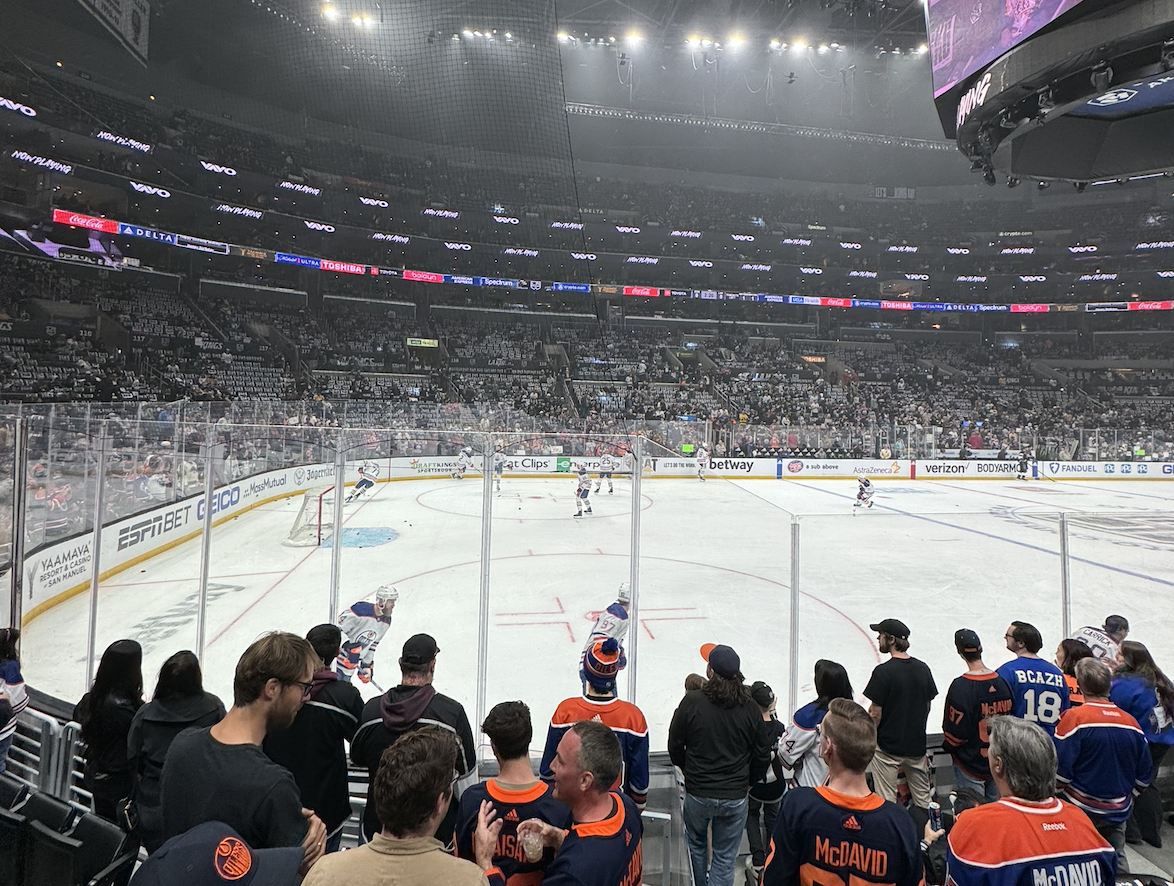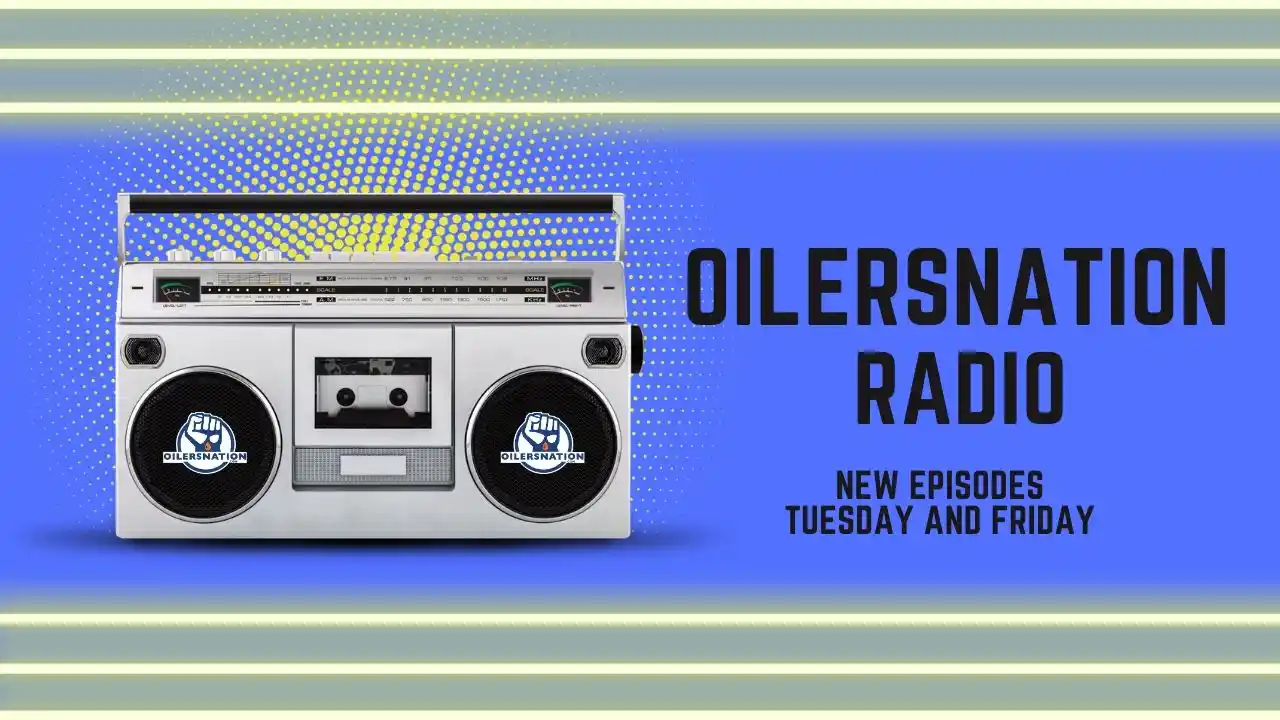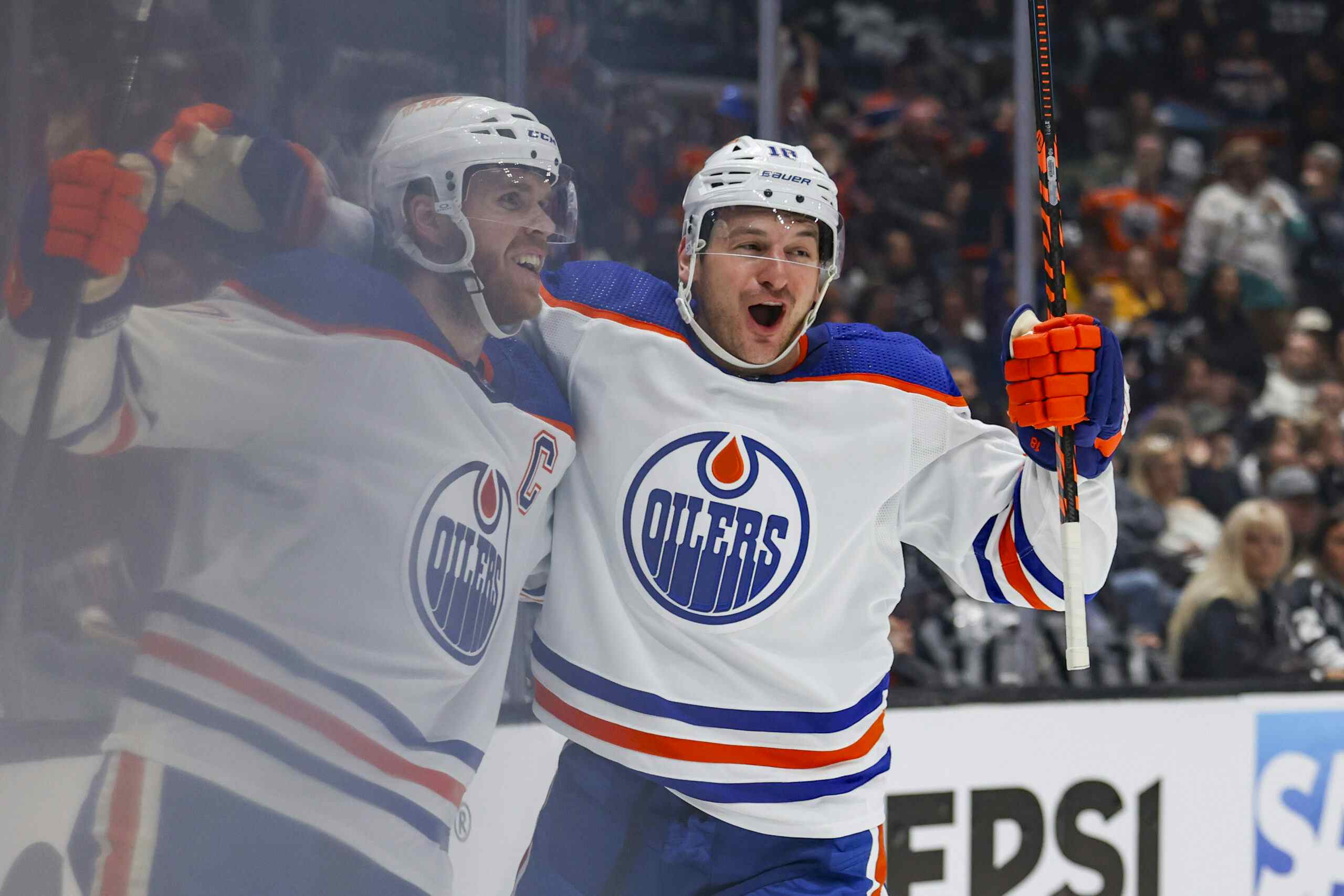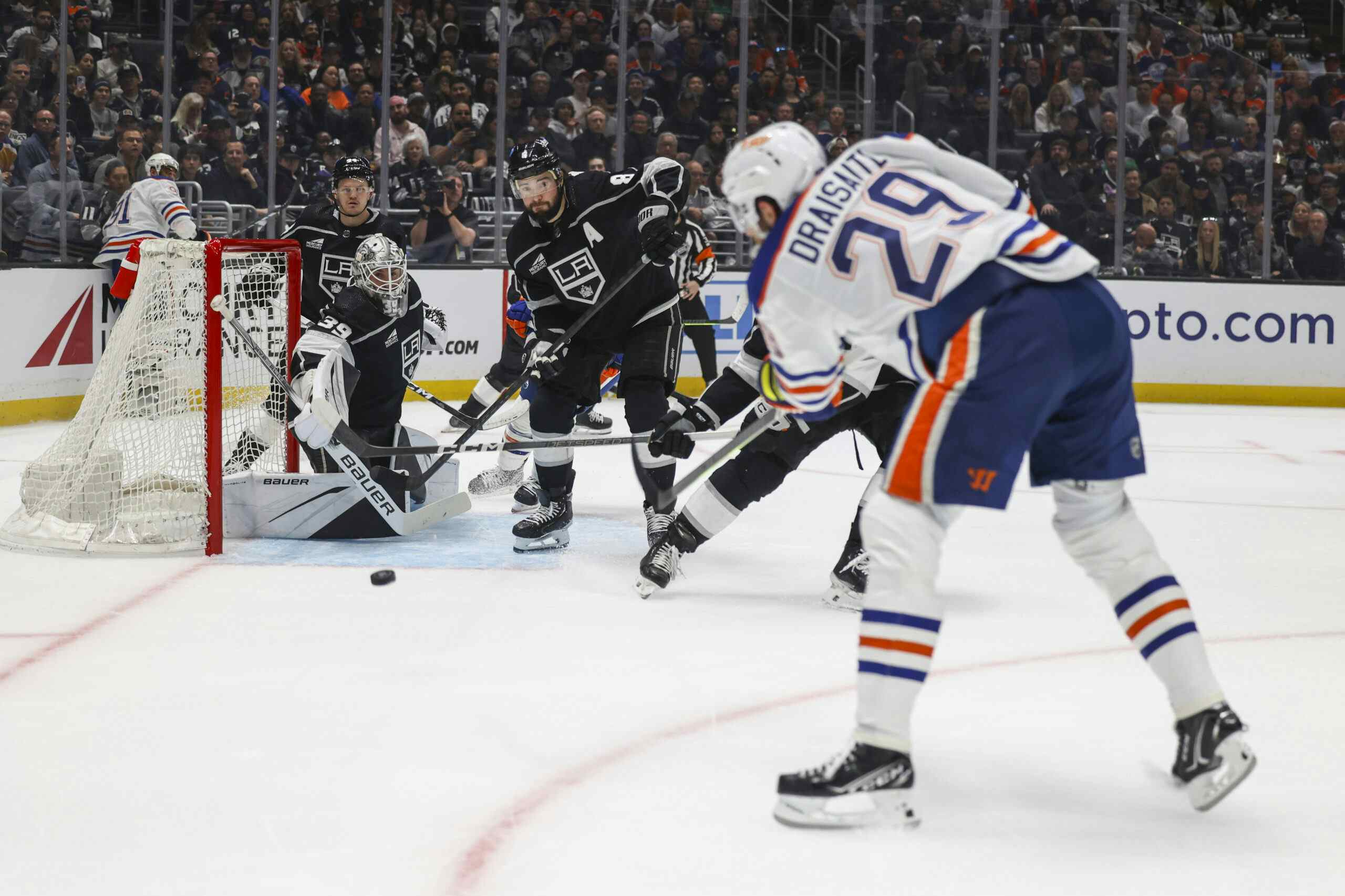WALLIN: ON RNH, DUMBA AND COACHING
By Jason Gregor
12 years ago.jpg)
Jesse Wallin drafted 26th overall by the Detroit Red Wings in the 1996 entry draft. He felt the pressure of being a first round pick, the struggles to try and be a regular in the NHL and the disappointment of having his career cut short due to a concussion. After retirement he was out of hockey for a year, but got back in as an assistant coach with the Red Deer Rebels in 2005.
He spent three years as an assistant and associate coach, before being named head coach in 2008. He’s now in his fourth year as the bench boss of the Rebels and we talked about his philosophies on coaching, dealing with elite players like Ryan Nugent-Hopkins and Matt Dumba and what he’d like to do in the future.
JG:You’re kind of in a unique situation. Not a lot of coaches will have two potential top-five picks in back-to-back years. You had Ryan Nugent-Hopkins, and now Matt Dumba. How often do you talk to those guys during the course of the year to try to ease their mind of thinking about that big-picture goal?
JW: Well, I guess as needed. You know, it’s not a regular thing or a set thing, but it’s just a matter of discussing when we need to sit down. With Hoppy in particular being in that first‑overall slot, it seemed like he was really under the spotlight a lot last year and I think he did a tremendous job handling it. He is a very level‑headed young man, and he just seemed to take it all in stride, and we didn’t need to spend a whole lot of time together. When we did, we had some good talks, and it was just kind of keeping things in line, and it wasn’t a real difficult job with him. He did a real good job on his own, and Matt is very much the same way. They’re both real mature young men. There are certain pressures that come with being in that position, and they’ve both been top players along the way, so in a lot of ways they’re already used to it.
JG: Matt Dumba loves to jump in the play. He is not afraid. He had a big hit last night, and then he had a fight in the Top Prospects game. When you coach a young player like Dumba and when you look at the big picture in the NHL, you can’t be a high-risk defenseman. Do you take that into account, or is it hard to pull the reins back on a thoroughbred at the junior level?
JW: Well, it’s finding the balance, and it’s certainly something that he’s still learning and still trying to figure out. He is very raw yet, and he’s got a skill set, and he’s got ability and tools. You don’t want to rein him in. You want him to be able to use those skills to his advantage, but I think more than anything it’s learning the right time and the right opportunity as to when to utilize it fully. To learn the right time in the hockey game, depending on the situation, and really picking his spots. His instincts are to go. He wants to go up the ice. Every time he gets the puck, he wants to make something happen.
And you look at the some of the best defensemen in the game. A guy I use as an example with him all the time is Nick Lidstrom because I played with him, and I think he’s the best defenseman in the game and, to me, still is. Nick’s got some unbelievable talent, but he uses that ability to be better at all the little details in the game than everybody else. I think that’s something Matty is still figuring out. He’s obviously a little different type of player, but it’s using his skating ability, using his puck-moving ability to be better at the small details of the game than everybody else is. When he plays that way, that’s really when he’s at his best.
There are times that he tries to do too much, where he picks the spot to take off up the ice and they have numbers back and he ends up leaving his forwards standing still. So he’s got that ability to rush up the ice, he just needs to learn when is the right time to go. You don’t want to take it away from him, but he is just learning to use that at the right time. He’s got some tools that are real special that you just can’t teach. He’s got amazing skating ability, and when he does rush the puck he creates a lot, and the energy that he plays the game with when he steps up with a big open ice hit really ignites our bench. He’s a fun kid to watch.
JG: When you have those types of guys who are clearly getting a lot of attention, and rightfully so, how do you balance that as a coach to ensure that there is cohesiveness in the locker room? Because, maybe at that young age — I know there is probably rare chances of jealousy — but maybe it creeps in. How do you avoid looking like there is any sort of favoritism at all?
JW: Well, by treating them the same way as everybody else. A big part of that is for the kids buying in and expecting not to be treated any differently. I have been fortunate with these two guys that they both want to be treated the same way. They have no sense of entitlement. They just want to fit in. They want to be part of the team, and they work real hard to do that. So I’ve been real fortunate as a coach that I’ve had real good buy‑in and real good people to deal with, and it hasn’t really been an issue.
JG: Ken Hitchcock has told me that as a coach, he would get his five or six best players and ensure that they were on his side, because if there was any dissension amongst the ranks, about his style, that those guys would likely stop it before it became an issue. Nugent-Hopkins and Dumba weren’t necessarily the leaders of your team because of their young age. So do you still implement that philosophy that Hitchcock talked about?
JW: Well, yes, to a certain degree, but those players are part of our leadership group. Both Hoppy and Mathew because of the respect they have in our locker room, they both wore letters at a young age. Matty is 17 this year; Hoppy was 17 last year. But they come in, and because of the players they are, they have immediate respect. The maturity that they’ve shown and the leadership they’ve shown in that regard, we’ve been able to put them in leadership positions.
So they have been part of that group, our core group of leadership, even thought that is typically your older players. But those guys have fit into it, and so they’ve been a part of that process in the leadership group. We try to really give those guys responsibility with the direction of our team and on a day-to-day, week-to-week, month-to-month basis. They don’t carry themselves like they are young; they don’t act like 17-year-old players. They’ve got a maturity beyond their years not only as players but also as people, and that’s allowed them to be part of that group.
JG: You are in your seventh year with the Rebels as a coach but fourth year as the head coach. Talk a bit about how you’ve matured and how you’ve changed heading into your fourth year as a head coach, and what are you working on as a coach personally so that you’re ready not only to develop young players but also to develop yourself to be ready to go to the next level.
JW: Well, it’s been quite a progression. I mean coming in, I took over a team that missed the playoffs the year previous, and we weren’t a very good team. We knew my first year as a head coach, was going to be a difficult year for us as well. We didn’t have a lot of talent, and it was really about getting the foundation back in place, laying the framework to become successful again. It was a steady progression the first year. It was a tough year. I think we had 25 wins. The next year we ended up finishing fifth or sixth in our conference. I think we had 39 wins and made the playoffs. And then last year we developed into a real good team, and a lot of the players that were core players on the team last year were guys that had come in as first-year guys the first year I took over.
So we all kind of grew up together as a group, and we really had a tight-knit unit not only as players but as a coaching staff as well. I think as a coach you just kind of grow with your team, especially as a young guy in my first job. I felt like I grew up with the team, and it’s a matter of getting more comfortable.
I’ve had great coaches to work with. I worked with Brent Sutter for a couple years. When I first started coaching, he was the guy that really taught me to coach and gave me the opportunity that I have here, and I still have him as a guy to bounce things off of. We talk on a regular basis. I’ve had some real good coaches as a player, played for guys like Mike Babcock and Scotty Bowman. So I’ve had some real good guys to look up to and learn from.
But yet, until you’re really in the position to be a head coach, it’s tough to prepare for it. It’s kind of a fly-by-fire position, and you’ll learn on the go. You learn as far as matching lines and the little tricks of the trade. You really have to experience that to go through it. As far as my preparation or development for myself, I think if your focus is on your players and developing them in the right way, then you’re going to develop on your own as well. I really believe in that.
The dream for me: I’d love to coach at the next level; I’d love to coach in the National Hockey League someday, but it’s not the same dream as it was as a player. As a player, that was my end goal. It was kind of where I knew I was going or wanted to go from the time I was 5 years old. With this, it’s a little different. I’ve been there as a player, and I took this job with the intention that I wanted to be in Red Deer. And it was a great opportunity, and it was the next step after playing. My focus right now has been on the Red Deer Rebels and being as good as we can be here and I really enjoy working with the young players.
It’s been a really rewarding process. To work with guys like Ryan Nugent-Hopkins, to see him come in at 15, and to see where he is now today a few years later, and knowing that I was a small part of that process: It’s very, very rewarding, and I’m in no hurry at this point to move on. I’m really enjoying where I’m at, and it’s about getting better every day as a team, and as a coach, you grow with that.
JG: You mentioned Scotty Bowman. You had him one year in Detroit when Dave Lewis was the assistant. Then the next year Dave Lewis took over as the head coach, and that had to be a tough transition. Did you watch that as a player, and did you learn from that when you yourself had to go from being the associate coach to the head coach?
JW: Well, it wasn’t so much a tough transition. I think for the players things just kind of continued. Scotty had been there for so long and Lewey had been with him for so long that from one year to the next it just kind of carried itself over. We had a real strong leadership group, a lot of veteran players. I think it was probably difficult for Lewey just in the sense that he’d been an assistant for 20 years, and all of a sudden the role changes.
I really think that the biggest thing is just being yourself. I mean, I took over from Brian Sutter, who I coached with for a year, and spent a couple of years with Brent. For me, it was a bit of a process in the sense that I knew after my second year — Brent and I had the discussion about me becoming a head coach at some point in time, and it happened a little earlier than we expected. But that was a good thing. I think the thing coming into that situation is just really being yourself, and I think I was always able to be that way as an assistant coach. The role was a little different as far as your interaction with the players, but I was able to show the same intensity. I’m an intense guy. I have a passion for the game, and I showed that as an assistant coach as well, and I think that’s served me well. When I took over the head role, I didn’t have to change my personality. I think coach’s get into trouble when they try to be something or someone that they’re not. I think you just have to show up each and every day and be who you are, and I didn’t find it a tough transition that way.
JG: What would be your best advice to the young coaches out there whether they want to take it serious and go to the next level or just improve on developing young players?
JW: Well, I think the biggest thing is you have to be in it for the right reasons. You have to focus on your players. At the end of the day if your players are growing, your players are developing, and they’re having success, they’re going to be your greatest advocate. That doesn’t mean being their friend; it means pushing them the right way.
I use Mike Babcock as a great example. A lot of guys that play for Babs talk about how hard he is, and he definitely is that, but I credit him for me becoming an NHL player. I was at a point in my career where I’d played a few years in the minors, and I really needed a push, and Babs was the guy to give it to me. It was tough to hear what he had to say, but at the end of the day, he was usually right, and it always made me better. I think he had my best interests in mind, and I think for most good coaches that’s their focus. They know that if they have their player’s best interests in mind and really have their focus on their players and not themselves, they’re going to reap the rewards of that.
QUICK HITS
- Many are focusing on the icetimes of Hall, Eberle and Gagner last night, but last the Oilers lost because their PP was brutal in the first period. A lengthy five-on-three and they didn’t generate one measly shot. They went 0-3 on the PP in the first. That was the game. The players, including Hall, Eberle and Gagner weren’t emotionally invested early in the game. It is fair to wonder why they didn’t play an extra shift or two, cause that would have got them to the 19-20 minute range, but that wasn’t why the Oilers lost last night. They, the entire team, went through the motions in the first period, and you can’t do that against a great home team like the Wings.
- I expect Barker to struggle coming off a three month layoff, so my question is why didn’t the Oilers send him to OKC for a conditioning stint. I know he counts against the 23 man roster when he is down there, but they have 8 D-man here, so having one in OKC for a few games wouldn’t have hurt them. The NHL is the best league in the world, and when a player hasn’t played in three months, unless he is an above-average player, he is going to struggle. Even two games in OKC might have helped.
- Paajarvi played better last night, and he looked really good on Gagner’s 2nd goal when he drove to the net. I hope he realizes he needs to do that more often to be successful. Going to the net has to become the norm for Paajarvi, and when it does he’ll start scoring.
Recent articles from Jason Gregor

